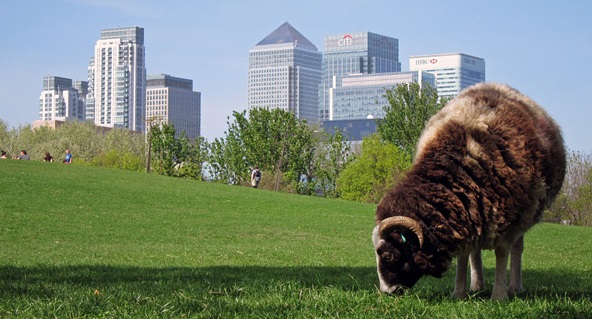
Cities cover just 2% of the planet’s surface but consume 75% of its resources. Any movement towards sustainability will need to focus on the resource-use challenges linked to production and manufacturing, a major part of which will be the role of food and agriculture.
Until recently, the benefits of agriculture were considered to be part of the rural development realm. But research suggests that in the future they will be part of city life.
During the past three years, the Countryside and Community Research Institute at the University of Gloucestershire has been part of a pan-European partnership researching into good practice in food production and consumption in urban areas as part of a major EU funded food project, Supurbfood, an acronym for ‘Sustainable Urban and Periurban food provisioning’.
The Supurbfood programme, which explored seven urban case-study regions across Europe, including Bristol, has just come to an end.
The research revealed key opportunities for Small and Medium-sized Enterprises (SMEs) to explore innovative entrepreneurial strategies along the entire food chain. The benefits include not only employment, but better access to fresh food, using urban spaces for a wide range of activities that enhance the environment and, through localising recycling, a reduction in greenhouse gases.
Researchers found that many innovative SMEs are already pioneering entrepreneurial efforts to address urban food provisioning and security.
In the Bristol case-study, the CCRI highlighted the work of FairShare South West, a small organisation working with the food industry to minimise food waste and distributing quality surplus food to those in need. Its research has also highlighted the important role of citizens in Bristol in instigating the dynamic civic environment that underpins initiatives such as European Green Capital.
The CCRI team was led by Dr Matt Reed, with Drs Dan Keech, James Kirwan and Damian Maye. Dr Reed said:
“One of the unique features of Supurbfood has been that we have always worked with SMEs as research partners, so we have understood their perspective. We are now publishing lots of short and useful resources that help people access that learning quickly.” (Latest briefing attached.)
Dr Keech added:
“We have worked with a global organisation called RUAF, who has experience across the world with urban agriculture and that has helped a lot. We have published details about our research in Bristol and Bath in RUAF’s free magazine; the whole edition reflects the work of the project.”
Urban Agriculture Magazine (No 29 – City Region Food Systems, p.26-29. May, 2015) ‘Building a Bristol Food City Region from the Grass Roots up: Food strategies, action plans and food policy councils.
Findings from across the Supurbfood partnership also highlighted the case for food growing areas, such as rooftop gardens, community gardens and allotments, to be made mandatory in new or renovated housing developments, and for more public investment to stimulate urban food system enterprise development.
